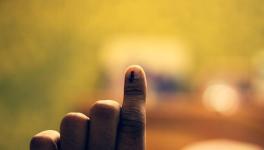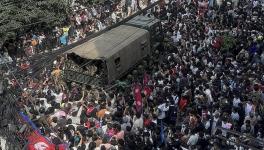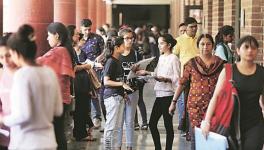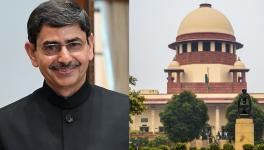What Stopped a ‘Decisive’, TV Savvy Modi From Announcing #Lockdown3
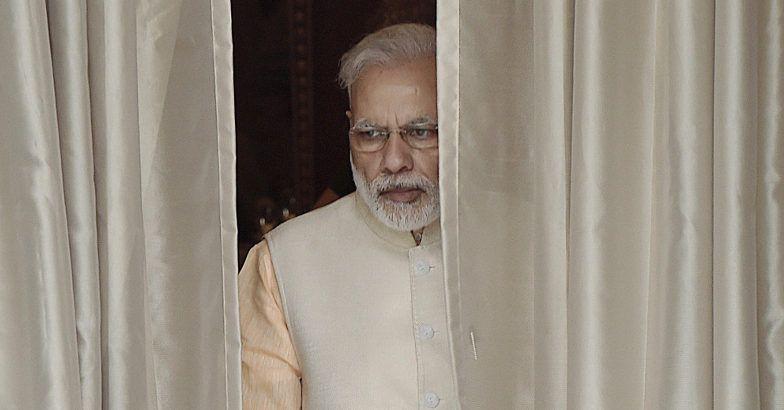
For a political leader who emphatically claims ownership of every government decision or programme and personally refers to the Central government as 'Modi sarkar' in most of his public addresses, Prime Minister Narendra Modi's decision not to put his signature on #Lockdown3 is perplexing and merits examination.
After having spoken on nine occasions on television or radio since March 19, when he gave the call for ‘Janata Curfew’, in each of which the principal focus was on the COVID-19 pandemic and what steps he was taking or setting tasks for people, Modi did not make the much-expected speech announcing extension of lockdown.
Instead, he chose a terse order signed by the Union Home Secretary followed by a Press Information Bureau press release to announce extension of the nationwide lockdown for another fortnight. Even the new guidelines on lockdown measures, which included colour coding of the nation to establish a new social hierarchy in the times of the pandemic, was made public in the form of an official release.
So if the 'decisive' prime minister announced lockdown on March 24 without hesitation and awed the world with his firmness, what happened for him to whittle down the announcement and make it a 'non-event' in complete contrast to his style? Why has Modi not claimed credit for the success of 'his' measures as a result of which partial and graded relaxations have been allowed in all three colour-coded zones?
What does Modi's decision not to announce this decision personally on television and instead allow a signed bureaucratic note to be released routinely suggest? Does this reveal lack of sureness or confidence and mark the beginning of an effort of separating himself from 'routine' decisions? It may be difficult to provide definite answers to these questions, yet these must be raised and deliberated.
It can be argued that because exiting the lockdown would be at any time more difficult than entering into it, the declaration of easing norms has been left to government officials. Even the exact extent of these relaxations were set by state governments, although within the framework signed by the Home Secretary. Obviously, Modi is no longer willing to take complete 'onus' or responsibility of the exit route.
Yet, the moot point remains -- can decisions of this government not be seen as having Modi's hallmark, especially as all previous mega announcements were personally made by him? There is but no escaping the deduction that the degree of separation between Modi and the announcement, is a symptom of worry and anxiety in Modi's thinking.
The reasons for such doubts are manifold and thereby the effort not to be an 'in the face' prime minister, as he normally is. If the lockdown was done without preparations, either by ensuring proper supplies of essential commodities or in anticipating the massive movement of migrant labour, the exit from lockdown has again not been planned adequately.
For the second time, the government has failed in anticipating the keenness or desperation of hapless migrant labour to return to their villages or towns. While the controversy surrounding the ticket charge for the train journey back home has acquired political dimensions, it is also evident that government has not been able to reach out to all those wanting to head homeward. Consequently, many migrants are still walking home, while others are locked in confrontation with police or other state agencies, as in Surat, Gujarat.
It has been argued in these columns that the lockdown "has been unable to prevent disease transmission". If this be the case, the primary objective has not been fulfilled and certainly Modi would be aware of this. A graded exit, when the disease is raging, makes little sense.
From the beginning, the Centre justified the lockdown by framing the issue as jaan hai, to jahaan hai, (if there is life, the world will follow). But soon it became evident that despite living in fear of being infected with the virus, people were also anxious about their receding bottom line. With last reserves of cash running out and no work in sight, people were getting restive, which was frequently being reported from a few regions or cities.
There is actually no knowing when people’s anger will no longer remain restricted to a few areas, and will spill out across regions. This can have political implications for Modi and reverse the trend of massive goodwill for him, which was recorded in the immediate aftermath of announcing the lockdown. Modi then showcased himself as the 'saviour', a role he cannot don at this stage. With the number of fresh cases rising swiftly, people are beginning to sense that they are neither certain of jahaan nor jaan.
Modi's efforts to share responsibility with states first became evident as the first lockdown period was coming to an end on April 14, and he sought the opinion of chief ministers on the fundamental issue of extending the lockdown. At that time, fear was paramount and no one was willing to take the responsibility of calling off the lockdown. Some chief ministers even announced extension of lockdown before the video meeting. After having armed himself with the support of chief ministers, Modi went and addressed people and extended the lockdown.
When May 3 neared, it was becoming evident that everyone felt that economy had to be kick- started, yet few were willing to call for exiting the lockdown. It virtually became similar to the old fable -- no one was willing to bell the cat.
Modi eventually opted for the middle path -- extension of lockdown for another fortnight but with significant relaxations, although he shied away from taking authorship. As a result of this, the prime minister risks falling between two stools.
But, the bigger anxiety is that the erosion of Modi's political capital will come in the wake of greater hardship and misery for people and the economy. Which is why he is anxious to share responsibility with states, so that he can apportion blame on them if people's sentiments turn against his government.
The writer is an independent journalist based in Delhi. The views are personal.
Get the latest reports & analysis with people's perspective on Protests, movements & deep analytical videos, discussions of the current affairs in your Telegram app. Subscribe to NewsClick's Telegram channel & get Real-Time updates on stories, as they get published on our website.









